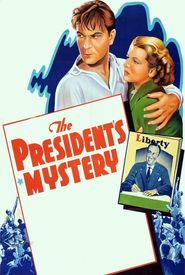John Erskine, a renowned and accomplished individual, made a profound mark in the realms of music and literature. Born on October 5, 1879, in the vibrant metropolis of New York City, he was destined for greatness. As a young and enthusiastic individual, he demonstrated an unwavering fascination with the art of music, dedicating a substantial amount of time to mastering the piano. His passion and dedication were further nurtured by the guidance of the illustrious composer Edward MacDowell, whose expertise and mentorship had a profound and lasting impact on his artistic development.
Erskine's academic journey reached its pinnacle with his graduation from Columbia University in the year 1900, marking a significant milestone in his educational path. He would later go on to attain his PhD in 1903, a testament to his intellectual prowess and dedication to his craft.
This impressive academic achievement served as the foundation upon which he built a distinguished teaching career, which began as an English instructor at Amherst College. Over time, he demonstrated exceptional pedagogical skills, rising through the ranks to become an Associate Professor, a position that earned him widespread recognition and respect within the academic community.
In 1909, Erskine made the decision to return to his alma mater, Columbia University, where he would go on to become a full professor in 1916. For an impressive span of 28 years, he served as a highly respected and influential educator, providing guidance and mentorship to a number of notable authors, including Mark Van Doren, Clifton Fadiman, Rexford Tugwell, and Mortimer J. Adler.
Throughout his tenure, Erskine was renowned for his ability to inspire and motivate his students, fostering a love of learning that would stay with them long after they left the academic setting. His influence extended beyond the confines of the classroom, as he played a significant role in shaping the literary and intellectual landscape of his time.
Despite his many accomplishments, Erskine remained humble and dedicated to his craft, continuing to teach and mentor until his eventual retirement. His legacy continues to be felt, as he left behind a lasting impact on the world of education and beyond.
Erskine's life was deeply entwined with the world of music, with a consistent presence on stage, entertaining at both intimate private gatherings and grand public concerts throughout his years. He held a position of great importance as a trustee at the esteemed Juilliard School of Music, a role he occupied from 1927, and later ascended to the esteemed position of president, serving in this capacity from 1928 to 1937.
Erskine's literary endeavors were numerous, comprising primarily of erudite scholarly studies and volumes of poetry, which he published in abundance, showcasing his vast knowledge and creative expression.
Erskine, a trailblazing literary luminary, left an indelible mark on the literary landscape in 1928 with the release of his ingenious and audacious novel, "The Private Life of Helen of Troy", a captivating and humorous reinterpretation of the ageless legend, masterfully transplanted to the effervescent and carefree era of the Jazz Age, a bygone era characterized by its exuberant jazz music, flapper fashion, and unbridled joie de vivre.
The extraordinary literary masterpiece in question did not merely receive widespread admiration from critics and readers alike, but astonishingly, it also accomplished a truly remarkable achievement, as it was successfully translated into a remarkable total of 16 languages, a resounding endorsement of its timeless and universal themes, as well as the author's exceptional narrative prowess.
Margaret Egbert Erskine's groundbreaking novel, "In Her Own Right", enjoyed a remarkable run of success, which in turn, sparked a cinematic adaptation, "The Private Life of Helen of Troy", in 1927. This film brought Erskine's imaginative and captivating world to the big screen, further solidifying the novel's status as a cultural phenomenon, a testament to its enduring appeal and influence.
Erskine's extraordinary accomplishment in creating a narrative that has managed to endure for an extended period, persistently captivating audiences and remaining a staple of popular culture, is a resounding tribute to his exceptional literary prowess and his remarkable capacity to forge a profound emotional connection with readers across diverse age groups and demographics, transcending the boundaries of time and space to leave an indelible mark on the literary landscape.
John Erskine, a distinguished academic and literary figure, brought his illustrious teaching career to a close in 1937, devoting himself full-time to the art of writing with unwavering dedication.
Throughout the years, he penned a diverse array of non-fiction works, including two exhaustively researched biographies that showcased his meticulous attention to detail, as well as three volumes of masterfully crafted memoirs that offered a glimpse into his remarkable life.
As the years passed, Erskine's ardor for writing only intensified, and his output became increasingly impressive, a testament to his unwavering passion and dedication to his craft.
Ultimately, John Erskine's extraordinary life came to a close on June 2, 1951, in the bustling metropolis of New York, leaving behind a legacy that continues to inspire and influence writers and scholars to this day.



















